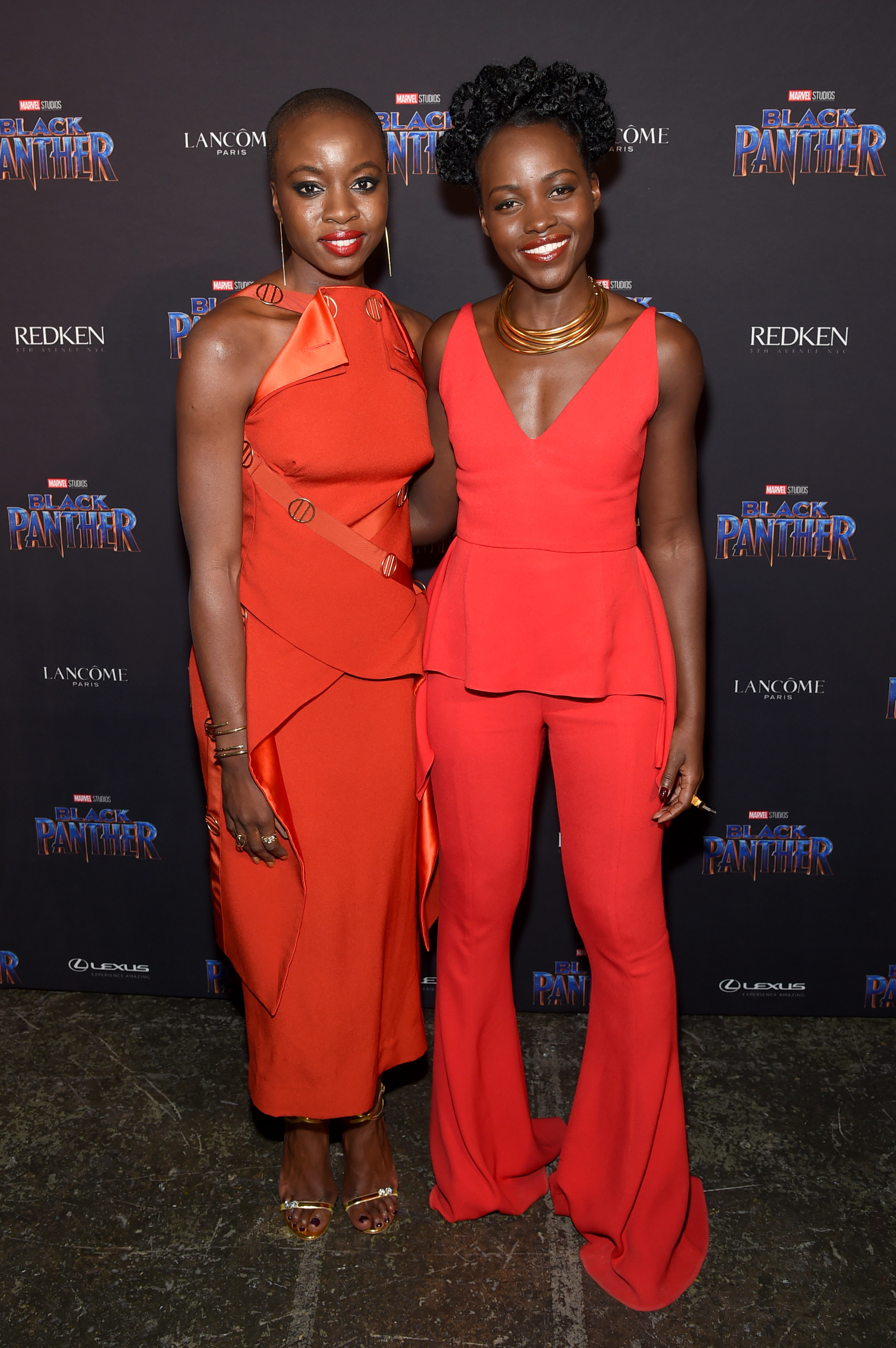Did you and everyone you know buy a ticket to Wakanda this weekend? Black Panther made $400 million over the holiday weekend, $169 million of which came from overseas, upending conventional — and, obviously, incorrect — expectations about what kind of movies domestic and global audiences can and will support.
As Dave Hollis, Disney’s President of Theatrical Distribution, told Deadline, the studio wasn’t expecting Black Panther to do those Avengers-level numbers: “It just didn’t seem possible.”
Black Panther, made on a budget of $200 million, is among the biggest productions in Hollywood history to feature a majority-black cast. It is already the top-grossing film by a black director — Ryan Coogler, of Fruitvale Station and Creed fame — featuring a predominately black cast, ever, breaking a record held by 2015’s Straight Outta Compton.
For context, Straight Outta Compton made an adjusted-for-inflation $214 million worldwide over the course of its entire run. Black Panther has only been in theaters for one long weekend and it has already nearly doubled that mark. And Black Panther hasn’t even opened yet in China, the fastest-growing movie market on Earth. (China, as well as Japan and Russia, will get Black Panther in early March.)
With a U.S. haul of $235 million, Black Panther just had the fifth-highest domestic opening weekend of all time, bested only by the two latest Star Wars installments, Jurassic World, and The Avengers.
As the New York Times reported, “Theaters scrambled to add show times to accommodate crowds; AMC Southlake 24 in suburban Atlanta squeezed in 84 show times on Friday alone.” Disney spent nine months on an elaborate marketing campaign, hyping the first standalone feature for a character who audiences only glimpsed in Captain America: Civil War.

Hollis told Deadline the success of Black Panther validated Disney’s decision to invest in stories about characters of color. If you build it, etc. “Our goal is to make movies that reflect the diversity of our world because those are the stories that resonate everywhere… The meaningful nature of being able to see yourself represented, those things really matter to everyone, but in this case it matters even more to communities of color. Representation matters and the times we’ve leaned into it, we’ve had massive results.”
In an interview with Vulture, Marvel Studios head Kevin Feige said it was “easy to take for granted, growing up in the United States as a white male, that my cinematic heroes look like me.”
Feige, who is also responsible for casting Tessa Thompson — a black actress — as a character who is white in the comic books in the latest cinematic installment of Thor, went on:
“It’s something that over the course of these ten years, having a certain amount of power over what type of movies are made and what type of actors we hire, I want everybody to have that feeling. We don’t take it for granted that people want to see themselves reflected in our heroes and our characters. That’s been the case in the comics for years, and, finally, that’s the case in the movies, and will only continue from here.”
As for “myths of what plays overseas or what doesn’t, or what type of person someone wants to see in a lead role,” Feige said, “that’s all noise until somebody comes and disproves it.”
Reviews for Black Panther have been almost uniformly ecstatic. Before it even opened, the film became the most-tweeted about movie of the year to date, amassing over five million tweets in less than two months. Over 200 grassroots campaigns in black communities “from Denver to Toronto to Ghana” organized screenings for the movie’s opening weekend, the Hollywood Reporter noted in its profile of Coogler, who attributed the wild anticipation for Black Panther to the fact that the movie is venturing into unprecedented territory — territory that audiences have been aching to see:
“The concept of an African story, with actors of African descent at the forefront, combined with the scale of modern franchise filmmaking, is something that hasn’t really been seen before. You feel like you’re getting the opportunity of seeing something fresh, being a part of something new, which I think all audiences want to experience regardless of whether they are of African descent or not.”
Black Panther imagines an invisible-to-outsiders African mecca. Wakanda is a nation with wealth and technology that make a mockery of what America has to offer, a regal, almighty rebuttal to a certain president’s dismissal of vast swaths of the African continent as being lousy with “shithole” countries. And while Marvel’s other black superheroes are confined to smaller screens or sidekick status– Luke Cage on Netflix and Falcon in the Marvel Cinematic Universe — Black Panther gets to be seen on an epic scale. (DC’s Black Lightning airs on the CW.)
Black Panther marks the first of several projects from Disney that puts black artists and stories at the center. Hot on the heels of Black Panther, Disney is releasing A Wrinkle In Time. The production is already historic — director Ava DuVernary is the first woman of color to helm a $100 million movie — and stars Storm Reid, who has talked about how “It means everything to be a girl of color and play Meg Murry because Meg Murry is, in the books, a Caucasian little girl. It’s just surreal because I get to empower other little African-American girls around the world and say that you can be a superhero.” And in 2019, Disney has a live-action production of The Lion King slated to hit theaters, with a majority-black cast that includes Beyoncé, Donald Glover, and James Earl Jones.

